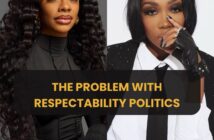
It’s no secret that looking for a job can be a daunting experience. It can be even more overwhelming when you lack the proper knowledge know the proper steps in getting your professional career off the ground.
During a Q and A, which first appeared on Quora, Charles Purdy, senior editor of Monster Careers, shares some do’s and dont’s for job seekers.
I think the biggest “don’t” is to wait for a job offer before getting started in your career, especially when the economy isn’t in great shape. This is important for new college grads who may be underemployed or unemployed.
Say you’re a newly minted journalism grad (for example) — you’ve got to get out there and start building your journalism resume now, even if you haven’t been offered a job. Start a blog, get involved in industry organizations, volunteer your writing services and create your own opportunities — and this advice applies across industries.
The self-defeating [mentality of] “What can I do? There are no jobs available…” is a career killer.
A related “don’t” is not highlighting relevant background information and experience on your resume. You don’t have to have been paid for something for it to be included in your resume’s summary section as a skill. Look at the job ad you’re responding to, and figure out what experience you have that speaks to it — even if it’s a soft skill like teamwork — then cite a specific example of your success in that area.
A very important “do” is to be smart about networking and your online profile —
looking for a job isn’t just about searching online and pressing that “apply” button.
looking for a job isn’t just about searching online and pressing that “apply” button. After that, you’ve got to do some research and work your network to find an “in” at the company. At the same time, you have to make sure that all of your online professional profiles are up to date, and that you’re managing your network in a smart, proactive way.
Answer below by Josh Tolan, CEO of SparkHire.com.
A few additions to this list…
Don’t think your cover letter and resume are all about you. It’s important to remember the cover letter and resume are about what you can do for the employer, not the other way around. Showcase the skills you have that are most relevant to your prospective employer, and keep the focus on the company’s mission and goals.
Don’t think your online presence doesn’t matter. The fact is, the majority of employers will look you up online before even interviewing you. Make sure you have a thorough, professional online presence. Consider creating a professional blog or website to showcase what you know. Share your thoughts and opinions on industry topics, and share your work, your resume, your video resume, and anything else that can help better establish your brand.
Do go into an interview having done your research. In order to be well-prepared for an interview, make sure you know the ins and outs of the company first. Look at the company website, research their clients and check out their social media presence — anything to ensure you’re fully versed on the position and the company. That way, you can answer each question thoroughly, and more importantly, tie your answers into the goals of the company.
Answer below by Quora user Candace Williams.
Below are four top tips to address this question:
Hustle. Finding a job is a full-time job. If someone were to ask you, “What did you do to find a job this week?” you should have a long answer that includes time sending resumes/cover letters, networking events, cold calls, informational interviews, research and time crafting your portfolio/interview materials.
Use a combination of networking and blind submission. Someone once told me I should stop sending resumes via online forms because no one reads them — they are wrong. The key to Craigslist and online job hunting is to apply early with an application that has evidence you’ve thoroughly researched the company and will go the extra mile.
Have baller interview and submission materials. I craft cover letters using research I’ve done on the company, submit visual and video resumes along with my traditional resume, create a website for interview purposes, prepare folders for each interviewer with writing samples and provide case studies I’ve written for the company, etc.
Have core values. If you’re looking for a job you’re passionate about and that fits your core values, you will be able to hustle for it.
If you’re dropping random lines everywhere hoping for anything, you won’t show the focus or passion companies want to see. Figure out what you want as a person, first, and then how those values should manifest in your work.



